For photography, the DJI Air 3 takes a different approach compared to the previous Air 2s. It chooses versatility and functionality rather than sheer image quality. It is supplied with a smaller 1/1.3″ sensor, but it offers a very useful second telephoto lens and a host of new handy features
Other related articles you may find interesting:
- Air 3: Camera settings for photography
- Air 3 Panorama mode
- Air 3 video review
- Air 3 vs Mini 3 Pro photo quality
- Air 3 vs Mini 3 Pro video quality
- Air 3: Telephoto lens
I have done in-depth articles about photography with the different DJI prosumer drones:
This article contains plenty of photos taken with the Air 3 in the different modes that can be downloaded as JPEG files
If you prefer to watch this as a video, you will find my YouTube version at the end of this article
The Predecessor: the Air 2S
When DJI announced the specs of the Air 3 everyone was expecting an improved version of the Air 2s, but the new model takes a different direction
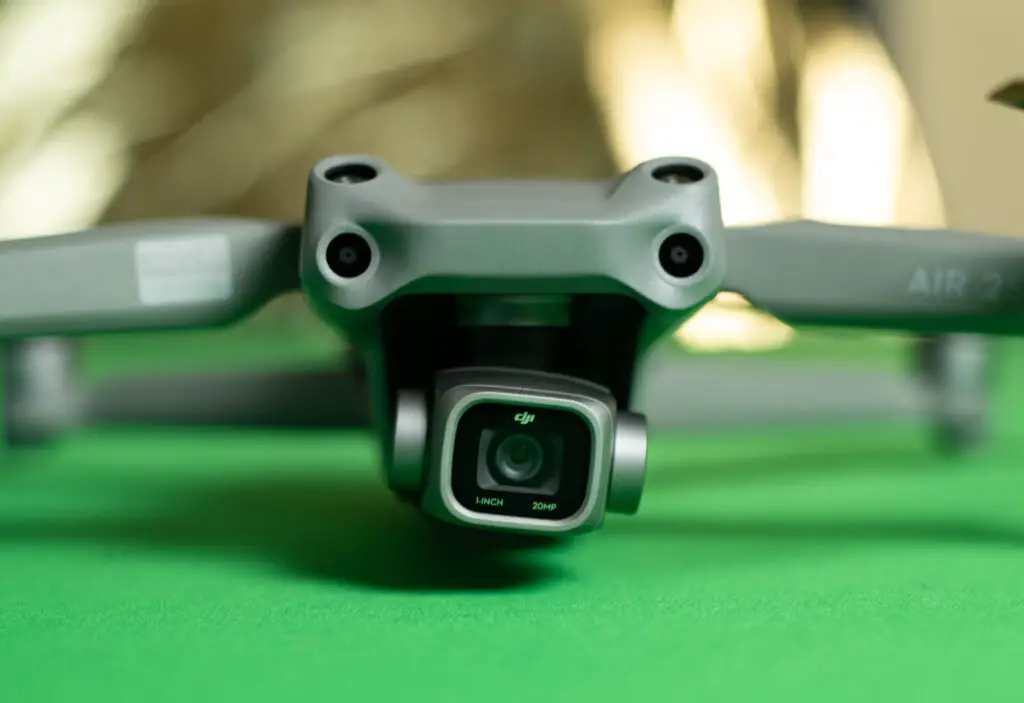
The Air 2S is a favorite of many enthusiasts and a benchmark in terms of video and photo quality
Thanks to the 1” sensor and the true 20 MP photo resolution this model in terms of still image quality is second only to the mighty Mavic 3 in DJI’s prosumer line, with extreme detail and very balanced colors
The only real downside was the battery life of only about 26 minutes, simply not enough for today’s standards. THis is not a deal breaker for photography, but it makes life very hard when shooting hyperlapses
Photography Specs
| Wide angle camera | |
| Sensor size | 1/1.3″ |
| Field of view | 82° (24mm) |
| Aperture | f 1.7 |
| Resolution | 12 MP |
| Telephoto camera | |
| Sensor size | 1/1.3 |
| Field of view | 35° (70mm) |
| Aperture | f 2.8 |
| Resolution | 12 MP |
| Weight | 720 grams |
| Max Vertical speed | 10 m/s |
| Max Horizal speed | 24 m/s |
| Wind speed resistance | 12 m/s |
| Max flight time | 46 minutes |
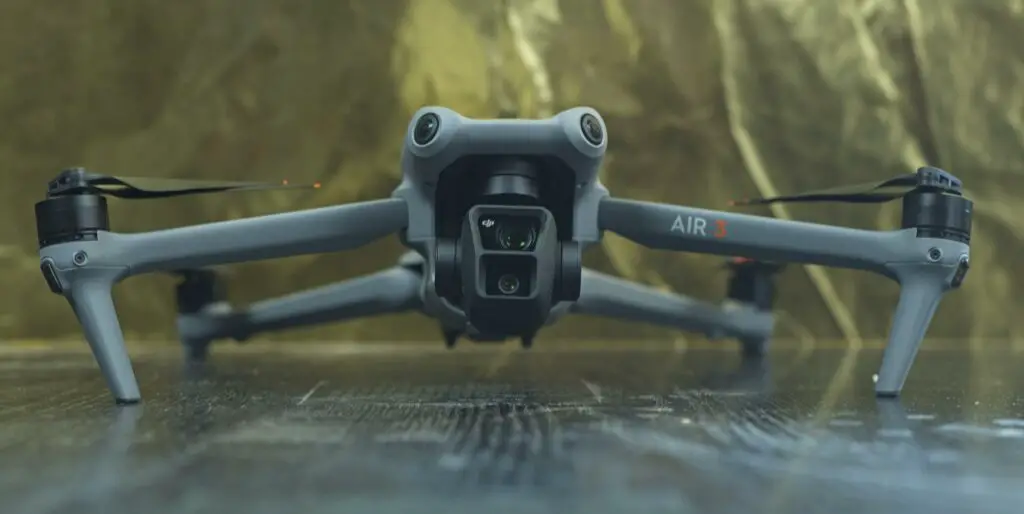
The Air 3 has a smaller sensor of 1/1.3”, the same size as the one of the Mini 3 Pro, with a real photo resolution of 12MP, a field of view equivalent to 24mm, and a wide aperture of f1.7, basically the same photo specs as the Mini 3 Pro
I am not going to analyze the specs for the video, as I will make a specific separate analysis of footage quality with this model
This new model offers an array of powerful features, some of them unexpected. Battery life is a whopping 46 minutes, at least on paper, which is a hyperlapser’s dream
It is much more powerful than the Mini 3 Pro in terms of wind resistance and speed
Signal transmission, the only real weak point of the Mini 3 Pro, has been massively improved
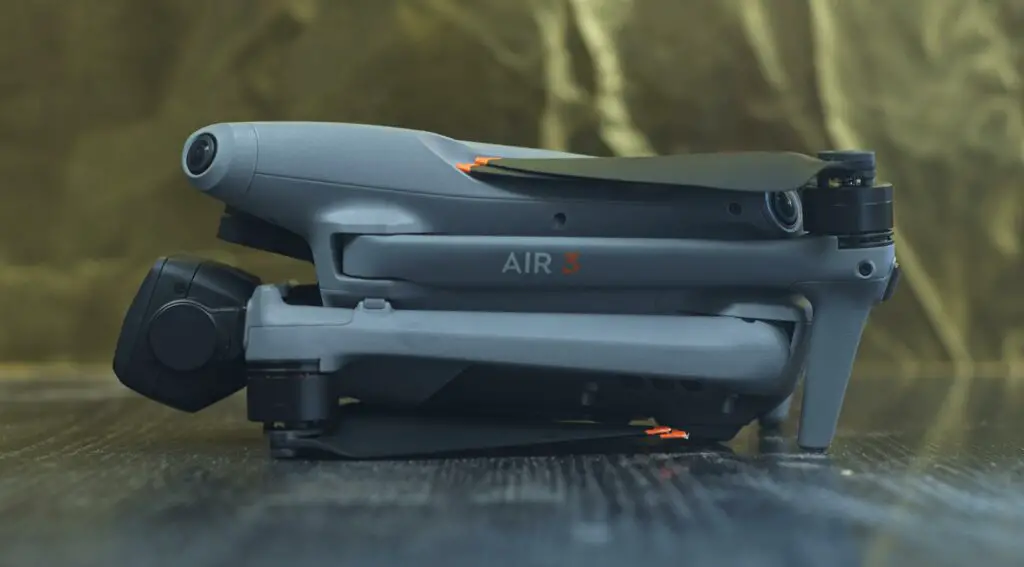
The Air 3 even offers features like omnidirectional obstacle avoidance and Waypoint mode for video, functionalities that so far were exclusive to the flagship model of the prosumer line
These features only marginally apply to photography so I will analyze them in depth in specific videos
The Air 3 is designed as a very versatile drone, a bit like a Mini 3 Pro on steroids, instead of a competitor of the Air 2s
Telephoto Lens
But the big unexpected new feature is the dual lens system, so far seen only on the recent Mavic 3
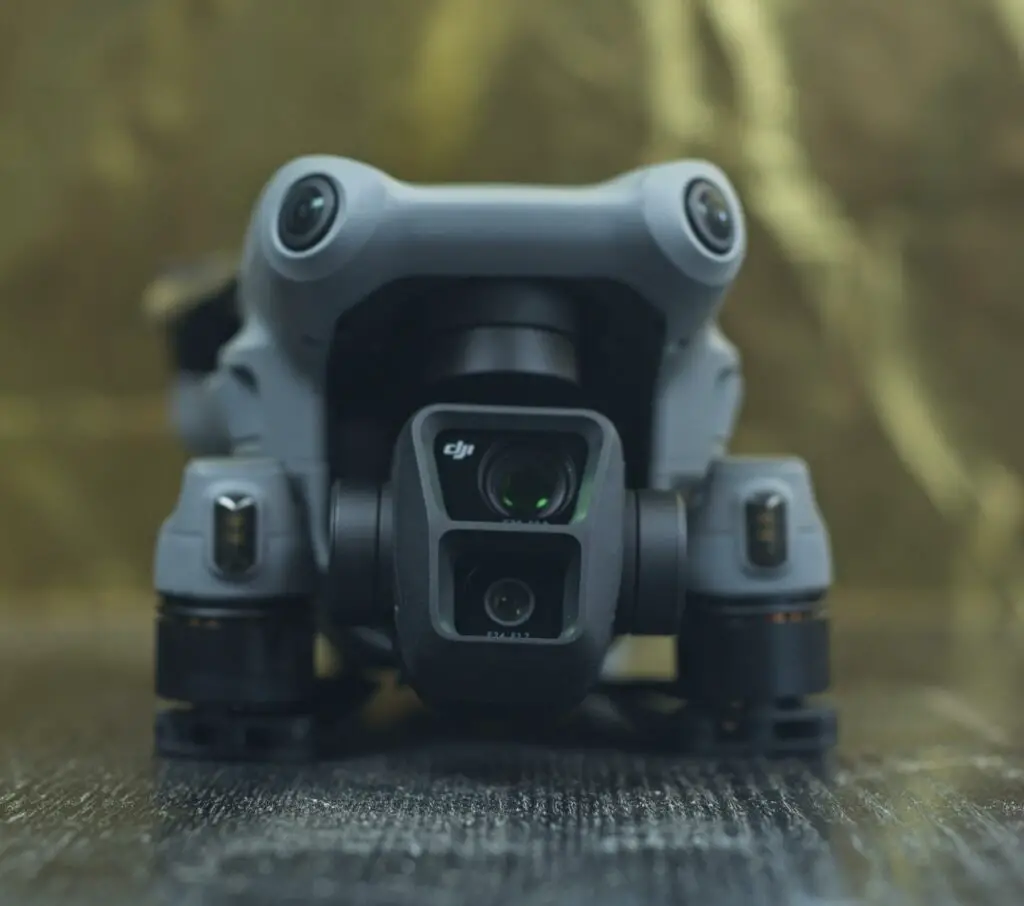
Besides the usual wide-angle lens, the Air 3 is also supplied with a 70mm equivalent moderate telephoto lens for a zoom factor of approximately 3x, with an aperture of 2.8 and the same sensor size of 1/1.3”
When I started using drones for videography and photography, about ten years ago, the image quality was much lower compared to ground-based DSLR cameras, but what I missed the most was the ability to swap lenses with different focal lengths
The choice of the two focal lengths in the Air 3 is precisely what the doctor ordered
The main lens at 24mm is the traditional wide-angle view of most drones, while the 70mm is the perfect length to reach targets we cannot otherwise reach due to regulations, for close-up cityscapes, for filming wildlife without disturbing, or for spying on the neighbors (just kidding)
It is also a perfect length to compress the different layers of a scene to obtain a different perfective or for a parallax effect
Photo Modes
The photo modes available are the same as the Mini 3 Pro:
- Single photo
- The so-called 48MP mode
- Automatic Exposure Bracketing (3 or 5 images)
- Burst
- Timed shots
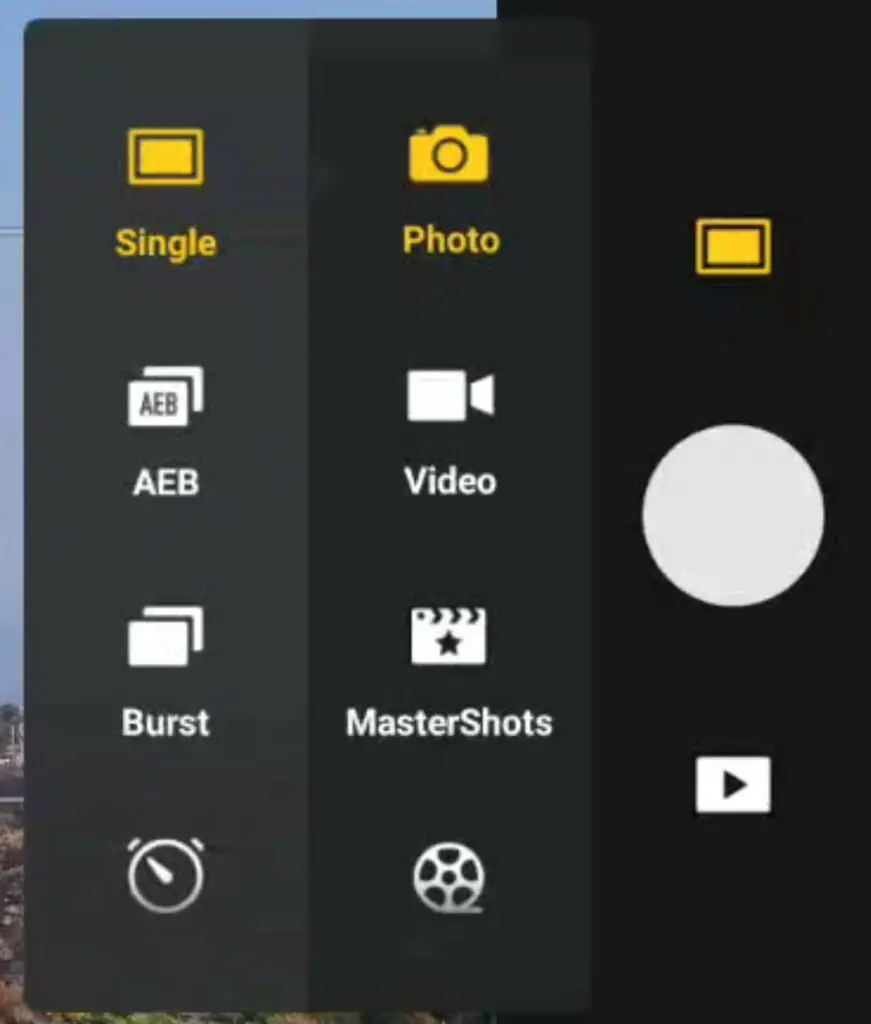
“48 MP” Mode
But the 48MP mode is not in the Photo menu it can be accessed in the Camera tab of the Settings
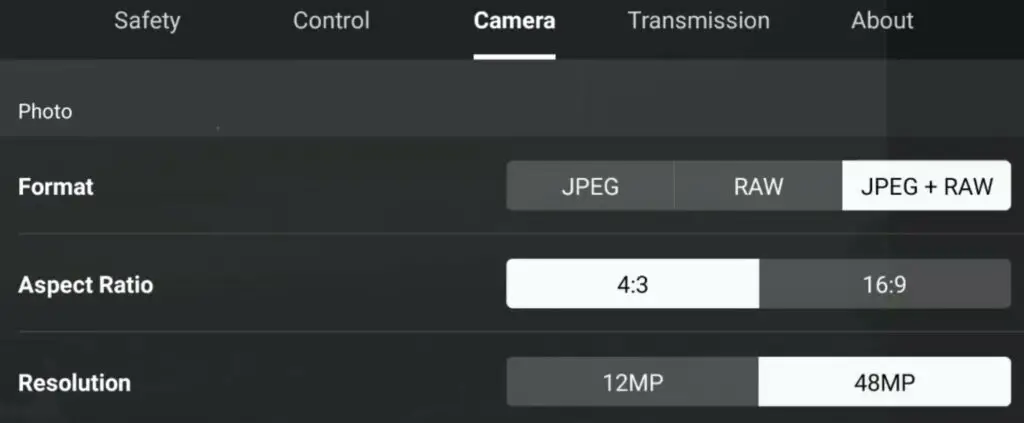
This mode can now be applied not only to single photos, but also to AEB and also to Panorama and Hyperlapses, but I will analyze these modes in specific articles
Dual-Lens System
Another major difference is the presence of the two icons for toggling between the two lenses: the one labeled 1x is for the wide-angle lens and the 3x one is for the telephoto one
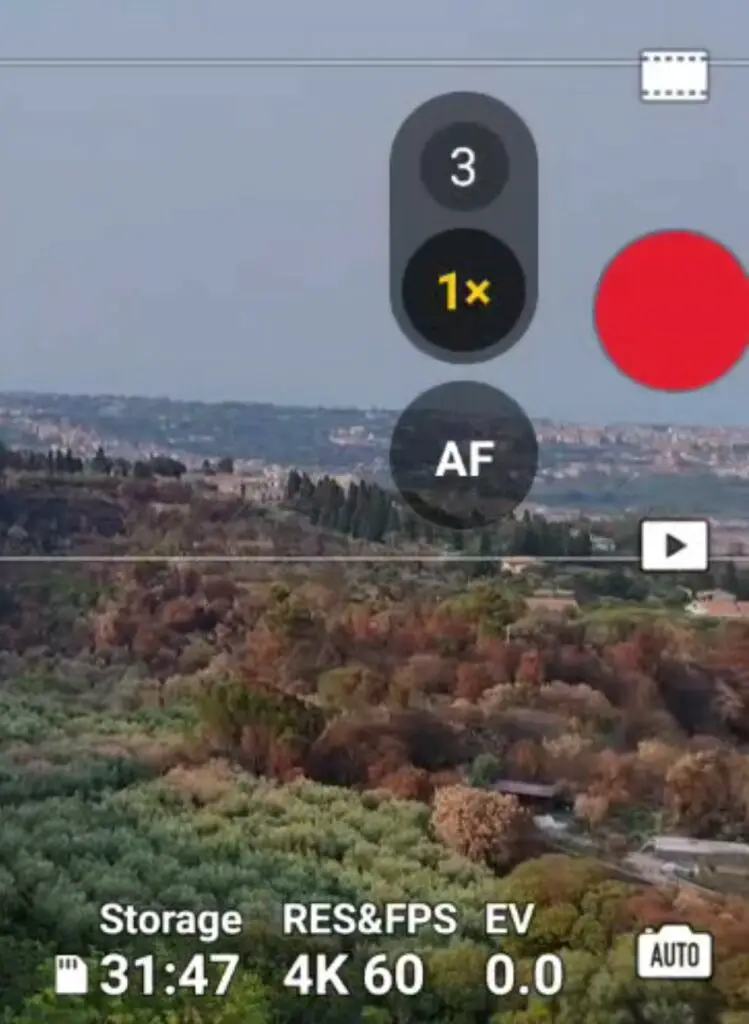
These two icons replace the one for the vertical orientation of the Mini 3 Pro
Automatic Exposure Bracketing
When choosing the AEB mode we have the usual choice between 3 or 5 photos taken at different exposure values with an interval of ⅔ of a stop
I find this mode very useful and I use it practically all the time for two reasons: it makes sure that an image is always perfectly exposed and in some cases better results can be obtained by merging the 5 images to HDR, using programs like Luminar Neo, the one I use. You will find info about Luminar in this article
Image Quality
Daylight
Let’s have a look at some images. The light conditions are horrible
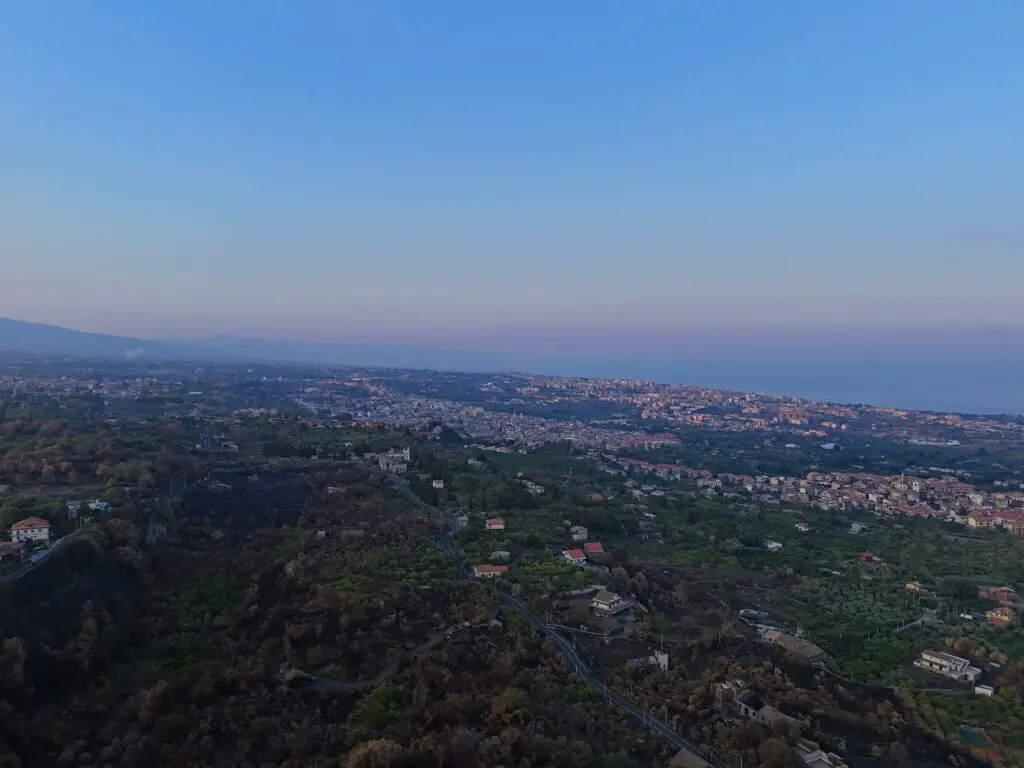
It is the month of August in Sicily, and during the summer here there is extremely low visibility due to moisture and dirt in the air
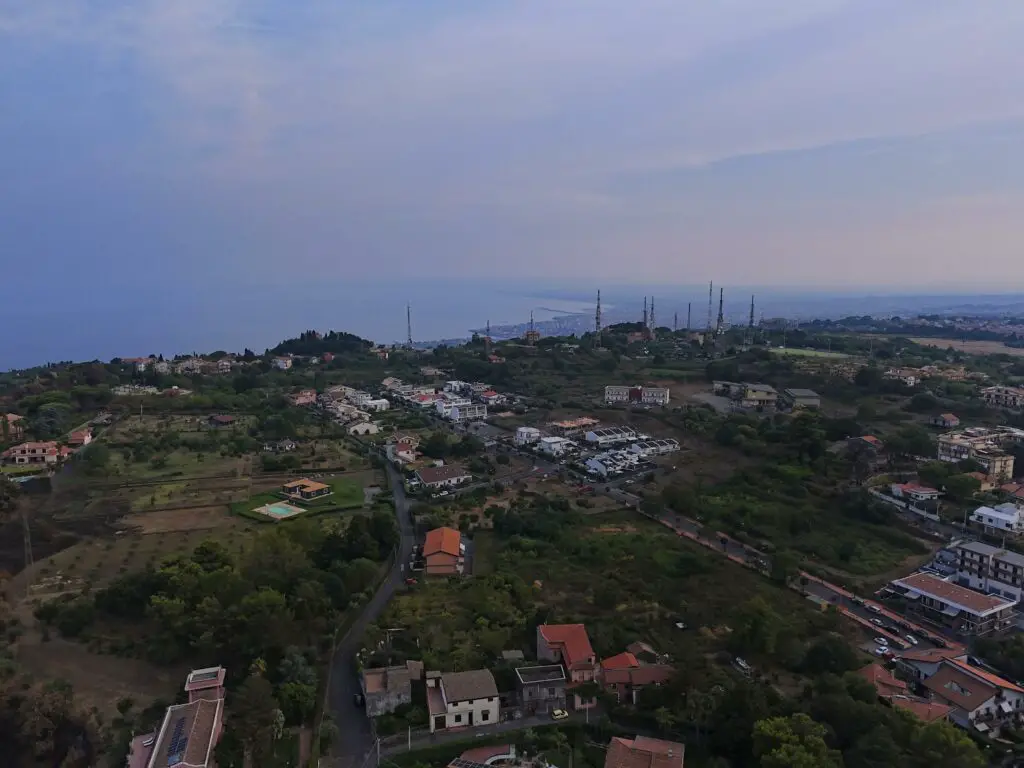
We can hardly see the difference between the sea and the sky. I would never shoot photos or video during the summer here but for the purpose of testing these conditions are helpful, as we can see how the camera reacts to the most challenging conditions
In the last month, the region has been ravaged by fires, as you can see
Wide Angle Lens
Images taken in normal daylight with the wide-angle lens are very pleasant (considering the horrible conditions), with well-balanced colors and an organic feel, similar to the ones taken with the Mini 3 Pro
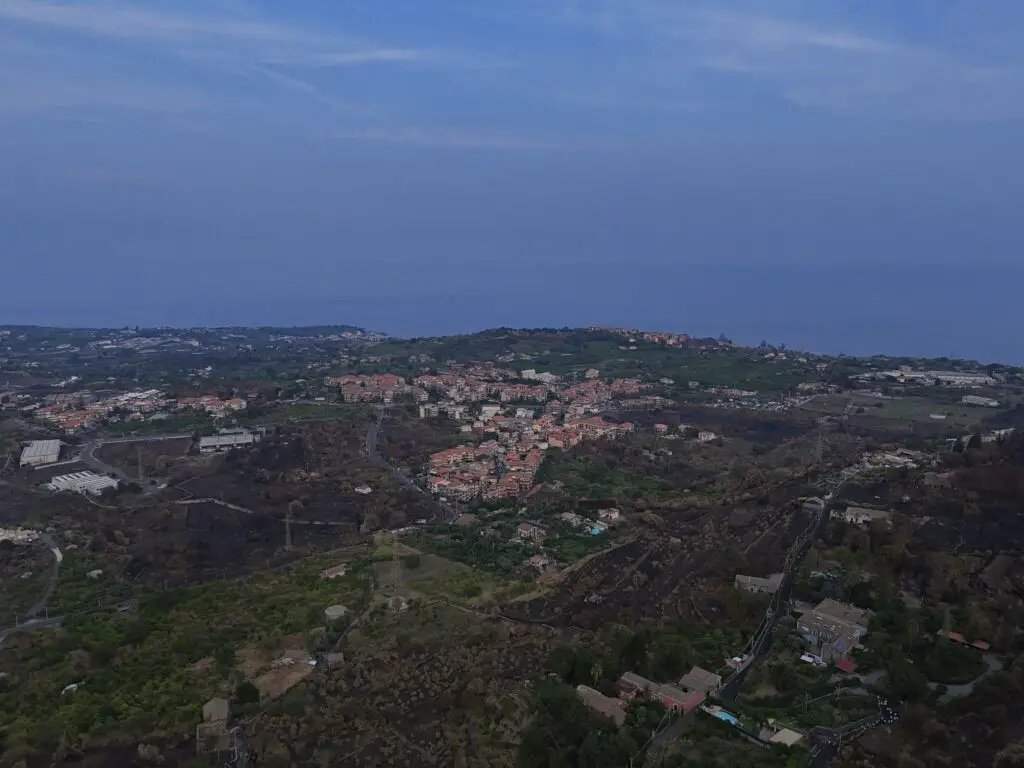
The detail is certainly not the same as the Air 2s, but this was expected due to the smaller sensor and the lower resolution
Telephoto Lens
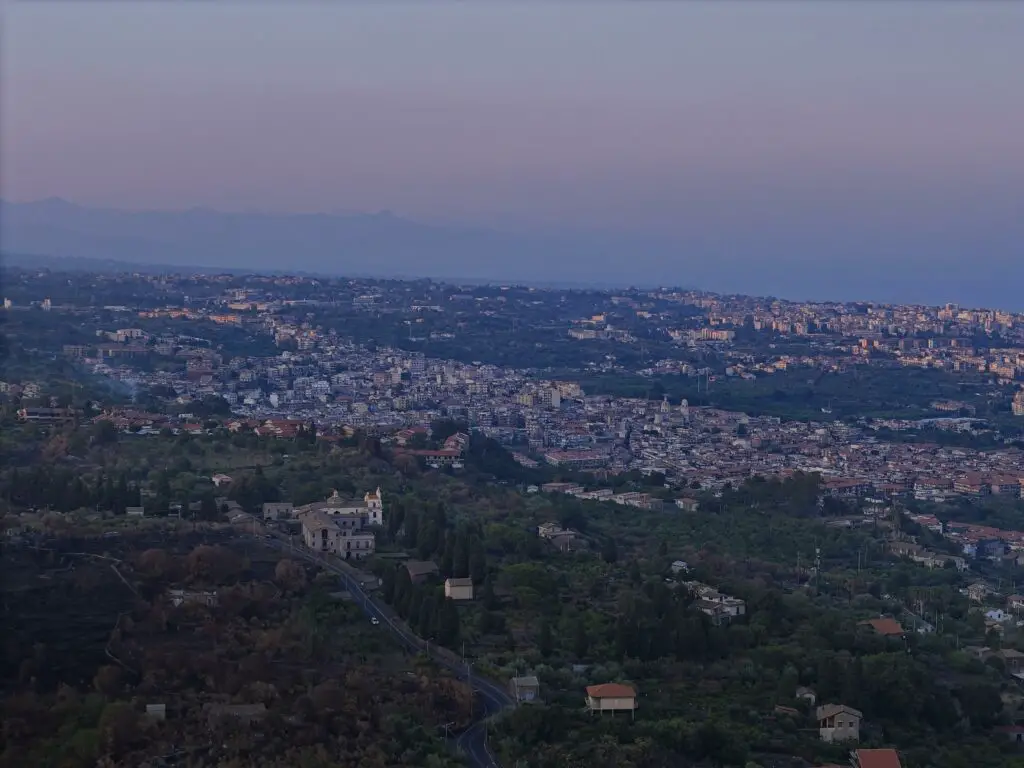
The telephoto lens produces images much darker than the ones taken with the wide-angle lens with the same settings
The difference is about one and a half stops. This is not surprising given the difference in the aperture of the two lenses
It is slightly annoying for users who don’t rely on computer editing, but it helps to shoot 5 bracketed images and then choose a brighter one for the shots taken with the telephoto lens
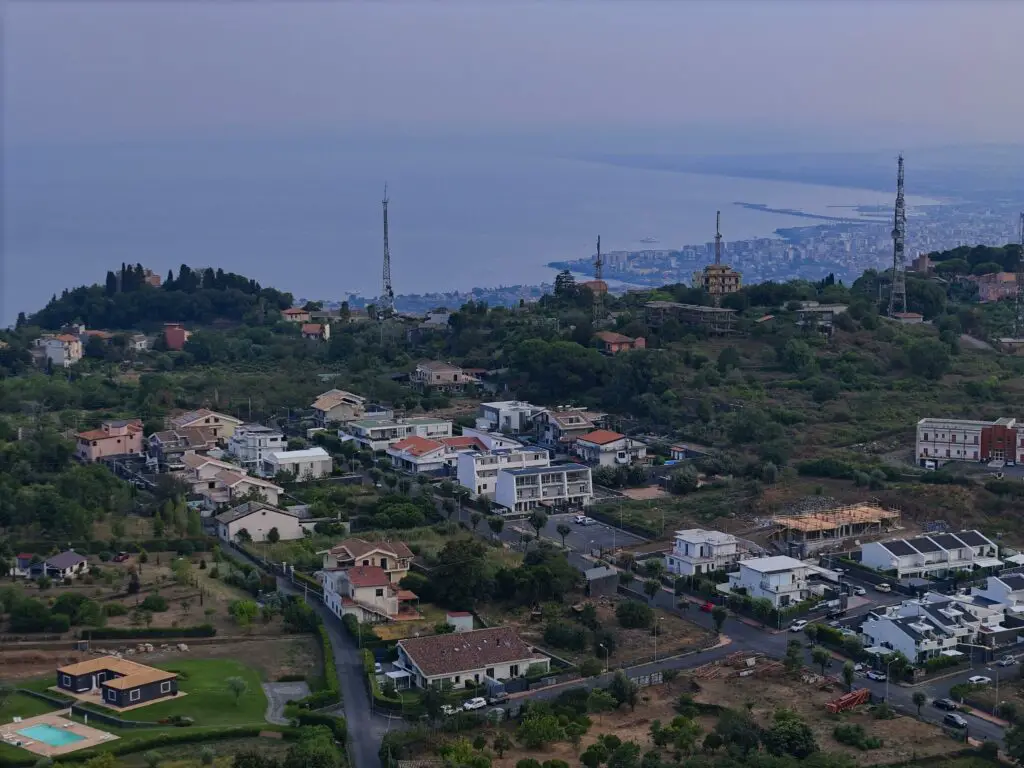
The quality of the images taken with the telephoto lens is excellent and this is very good news, as it makes it very easy to integrate images taken with the two lenses on the same project
They are maybe even better than the 24mm, with more contrast and slightly more detail, and this is a massive positive surprise
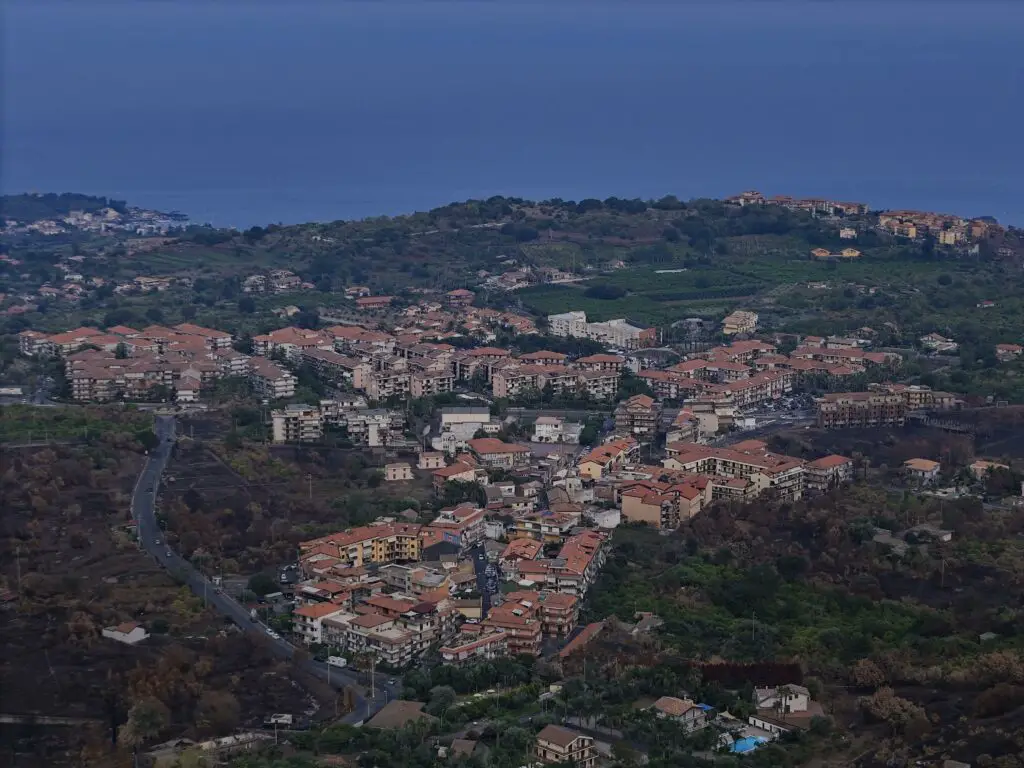
There is a slight inconsistency between the two lenses in the White Balance, as the 70mm lens tends towards a magenta cast, but this is easy to adjust by moving the color slider of your editor toward the green, or by creating a color preset
JPEG Files
The quality of the JPEG photos is excellent and this is good news for users who don’t do any editing
I still prefer to use RAW photos as they contain more info and respond better to post-processing, but the JPEG files have constantly improved in DJI prosumer drones and I find the ones of the Air 3 even better than the ones of the Mini 3 Pro
Top-Down Photos
Wide Angle Lens
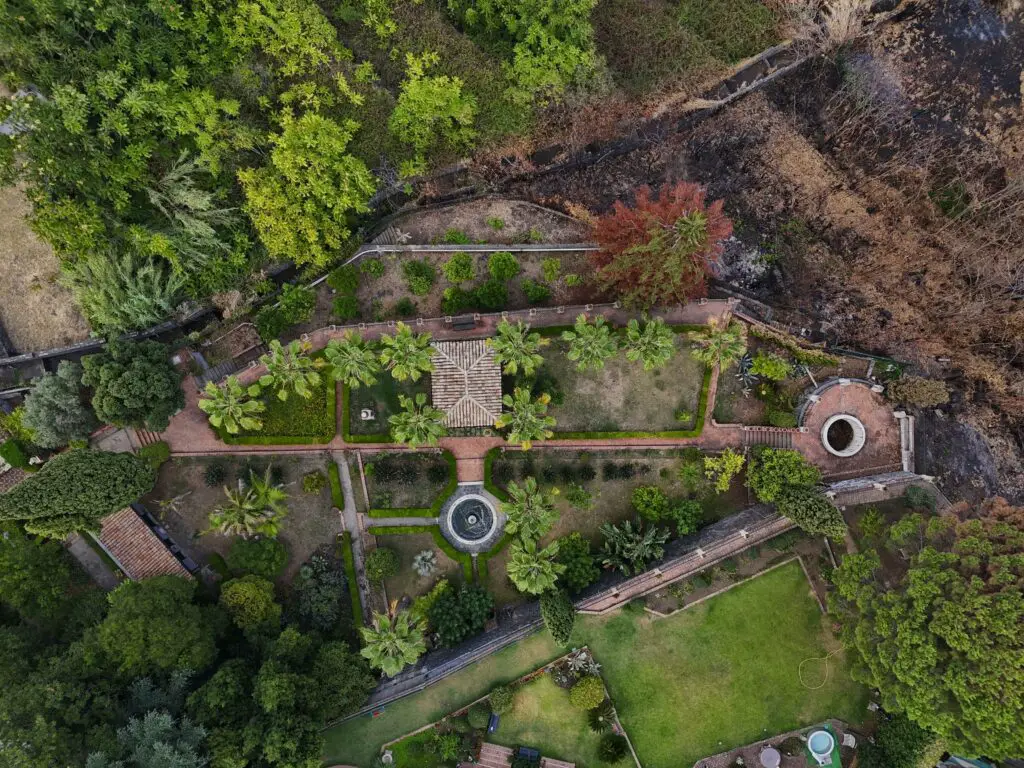
By turning the camera towards the ground for top-down shots we take the sky out of the equation to focus on detail and color rendition
The colors are nice and well-balanced, with a good amount of information in the shadows. The detail is certainly not the strong point, but the scene looks very natural
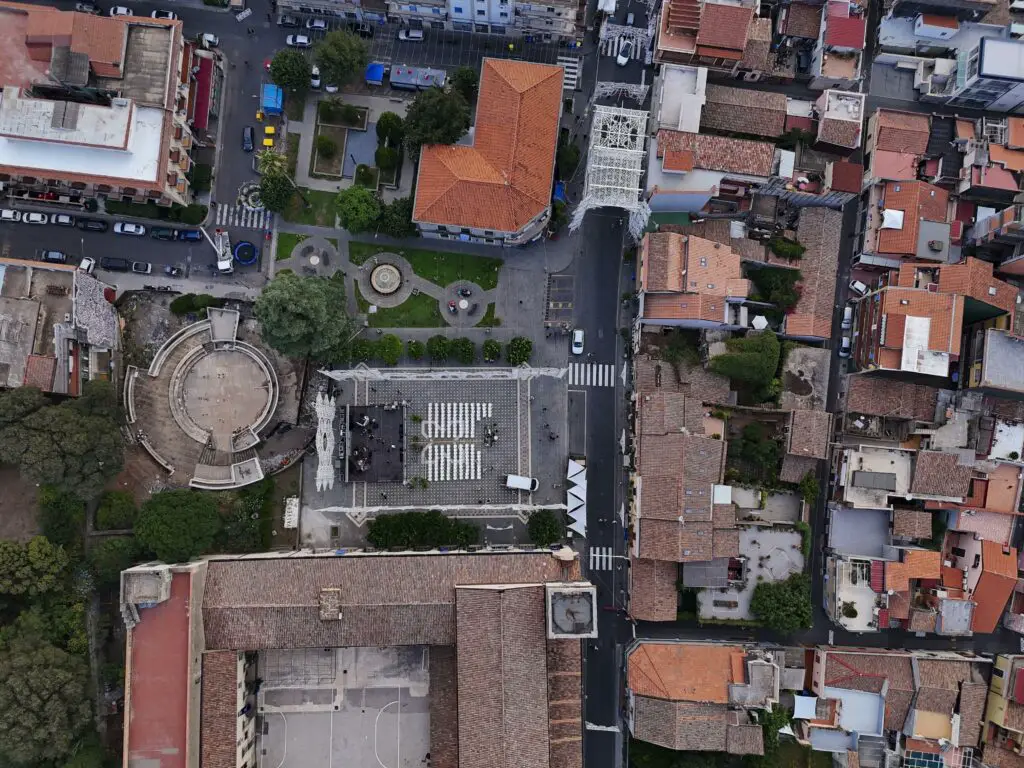
The rendition of the Air 3 is very close to the one of the Mini 3, but obviously, nowhere near the Mavic 3
Telephoto Lens
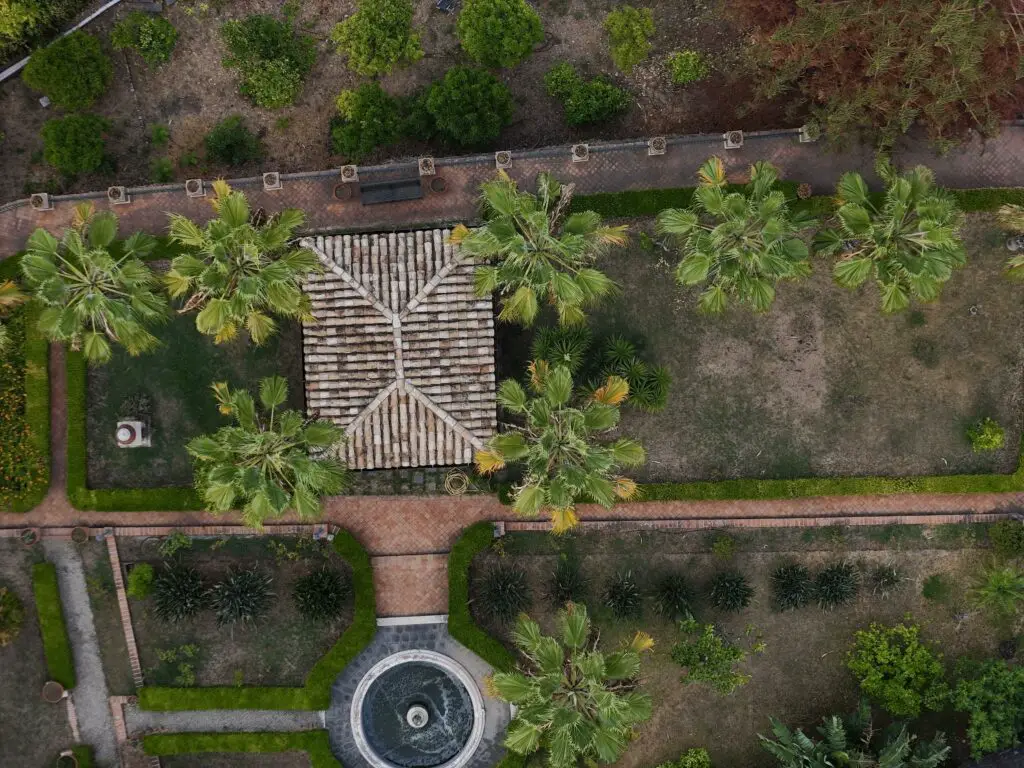
The same images taken with the telephoto lens are excellent, with more detail and contrast. I am starting to get very, very excited about this lens
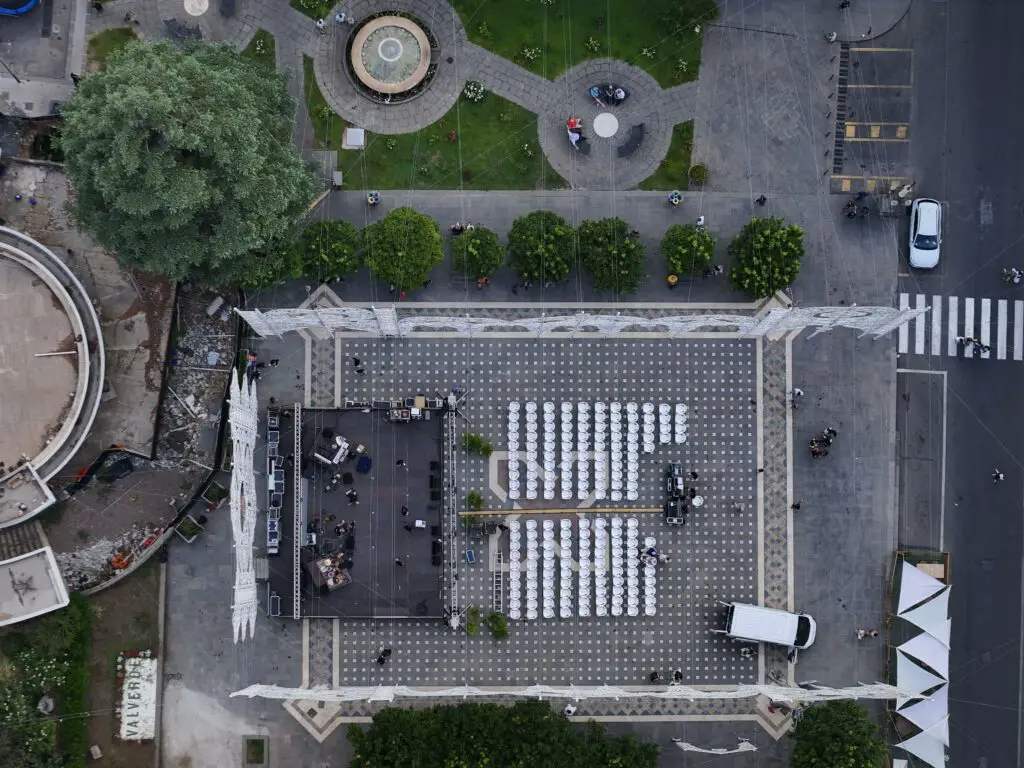
48MP Mode
Like the Mini 3 Pro, the Air 3 offers a so-called 48MP mode
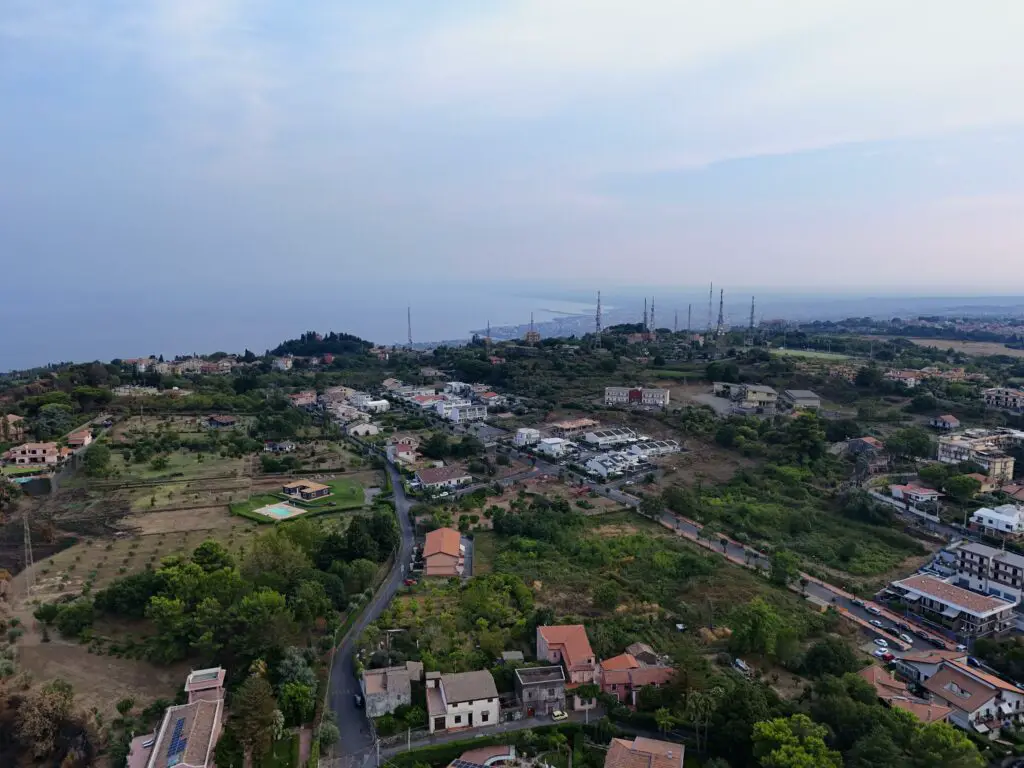
There is often some confusion as many users are led to believe that by magic these models have a photo resolution of 48MP and therefore a better photo quality than the Air 2s or even the Mavic 3. This is absolutely wrong
The Air 3, like the Mini 3 Pro and several smartphones, has a Quadbayer sensor, capable of splitting each pixel into four smaller ones, therefore achieving a sort of 48MP resolution
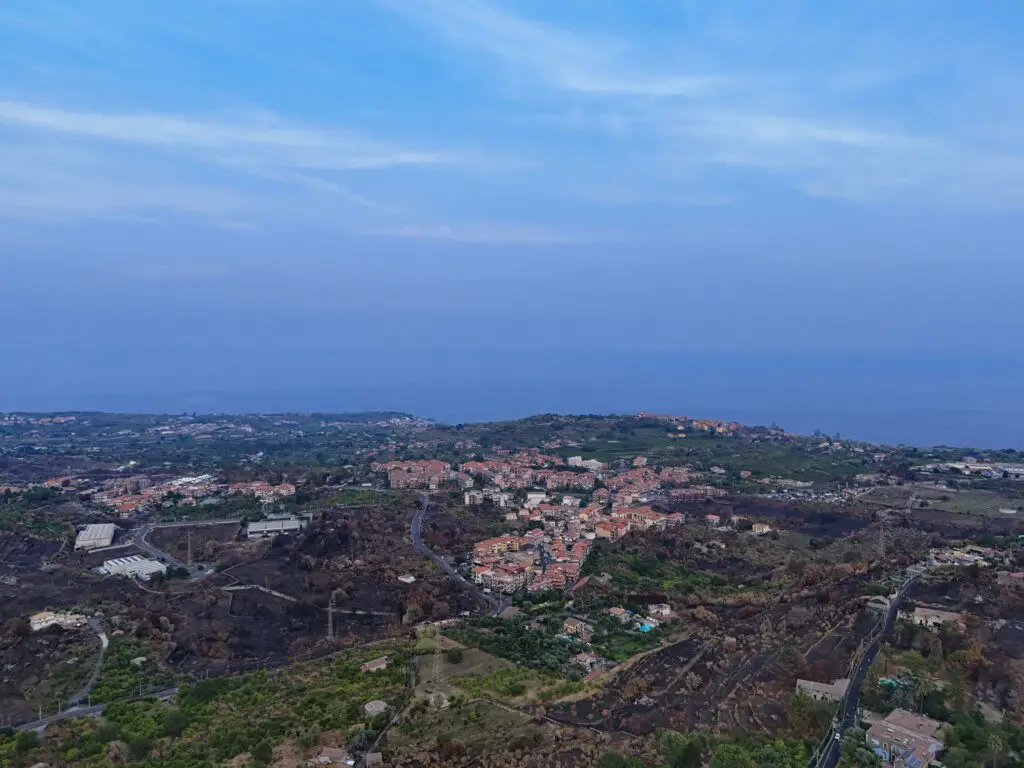
The issue is that each pixel is extremely small and cannot collect much light. This technology is still a work in progress that can have some small benefits under specific light conditions, but to state that this model has a photo resolution of 48MP is seriously misleading
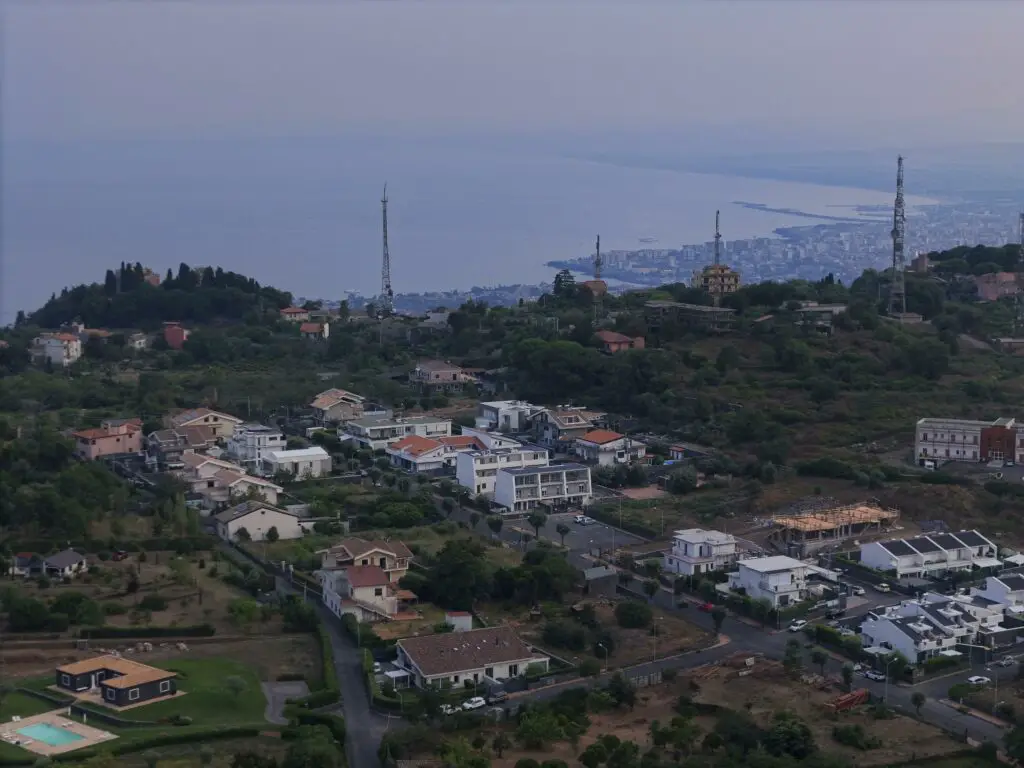
Also to be noted that the 48 MP images produce extra large files that require plenty of computing resources when inserted in a video timeline
Photos Against the Sun
And now the torture room. Some images against the direction of the sun, the hardest possible test for the lenses
This first one is in the direction of the sun just before sunrise. Not the most extreme HDR, but the difference in luminosity between the sky and the elements on the ground is huge
Wide Angle Lens
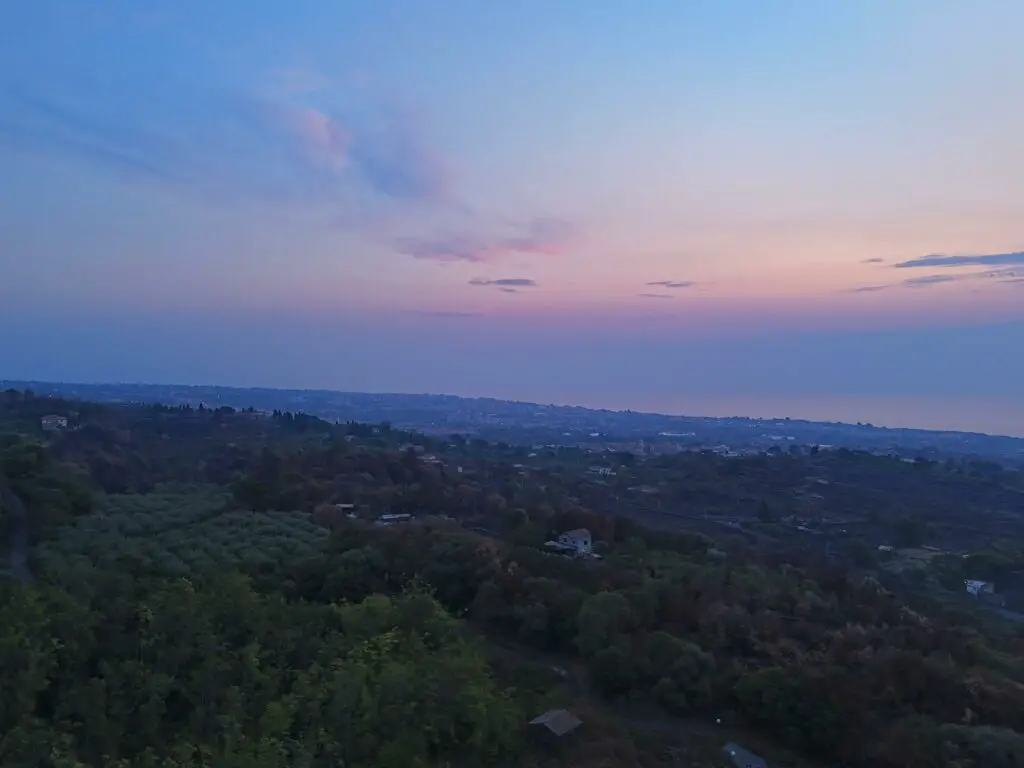
The wide-angle lens does an excellent job of reproducing a lot of detail in the shadows
In all these HDR images I have not used masks or Merging to HDR which would yield even better results
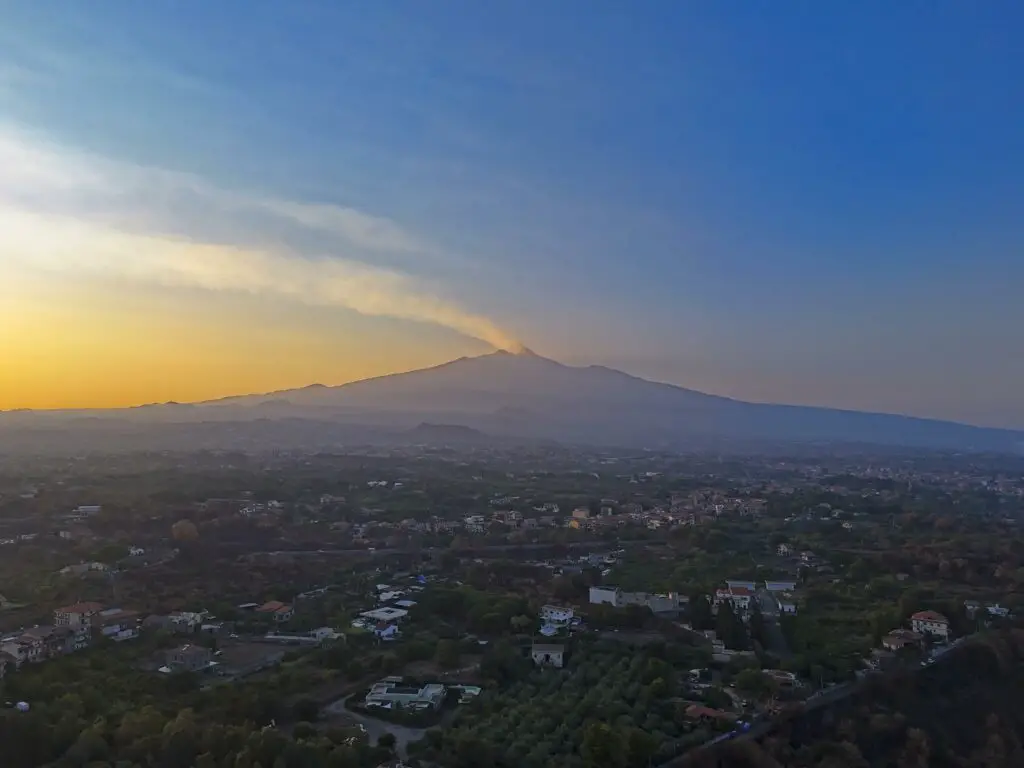
In this one, the sun is just out of the left edge of the frame a couple of hours before sunset with the usual horrible summer light conditions. There is plenty of haze and dirt in the air, in real life I could hardly see Mount Etna at all
The 28mm lens does a sensational job: again plenty of detail in the shadows, no chromatic aberrations, and very little loss of detail and saturation in the area near the sun
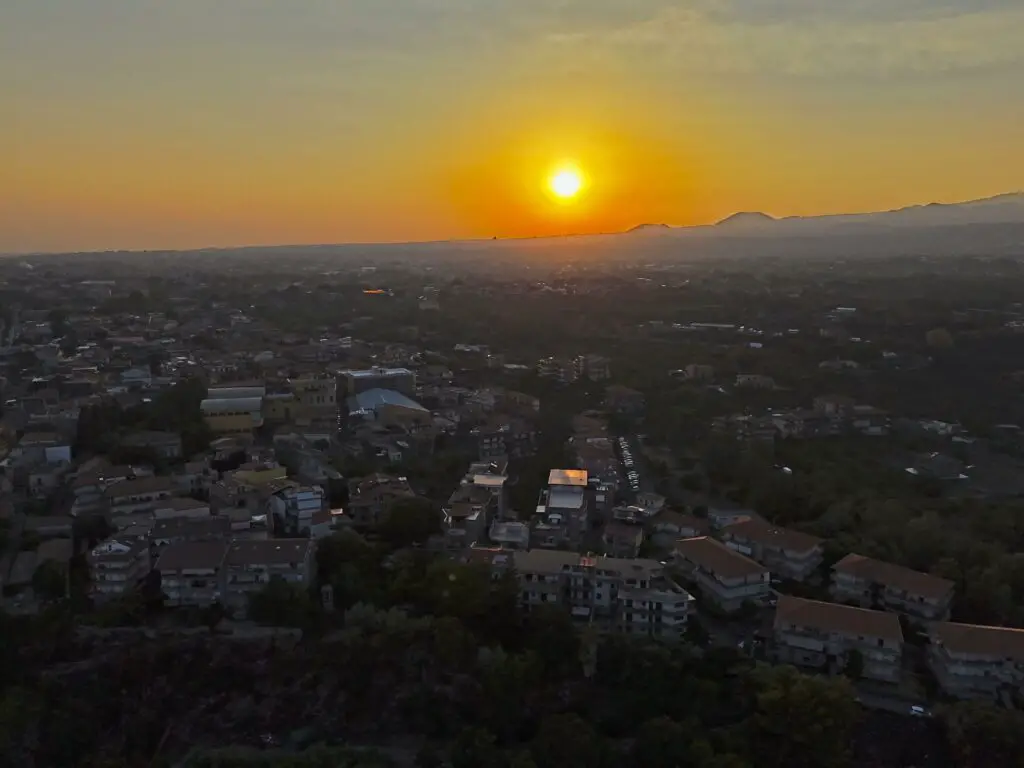
This one is the hardest possible situation, against the full uncovered sun. The result is simply astonishing
It is hard to believe how much the technology and the quality of the lens have improved in the last couple of years
Telephoto Lens
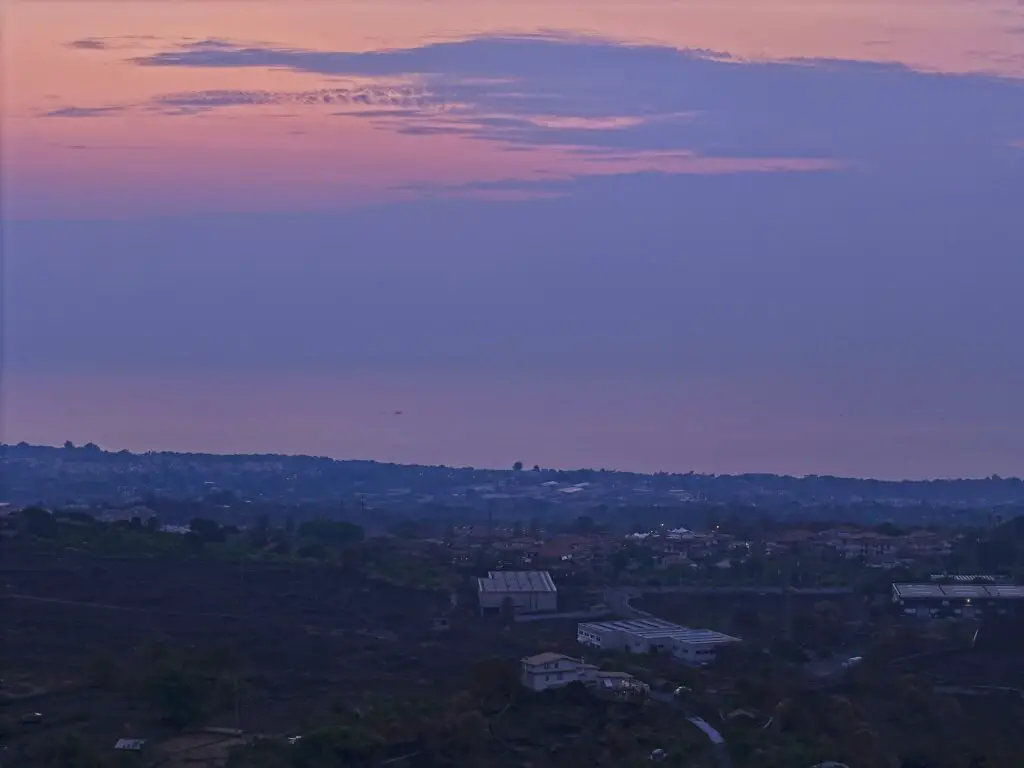
The results with the 70mm lens are also excellent, even though the shadows are slightly darker
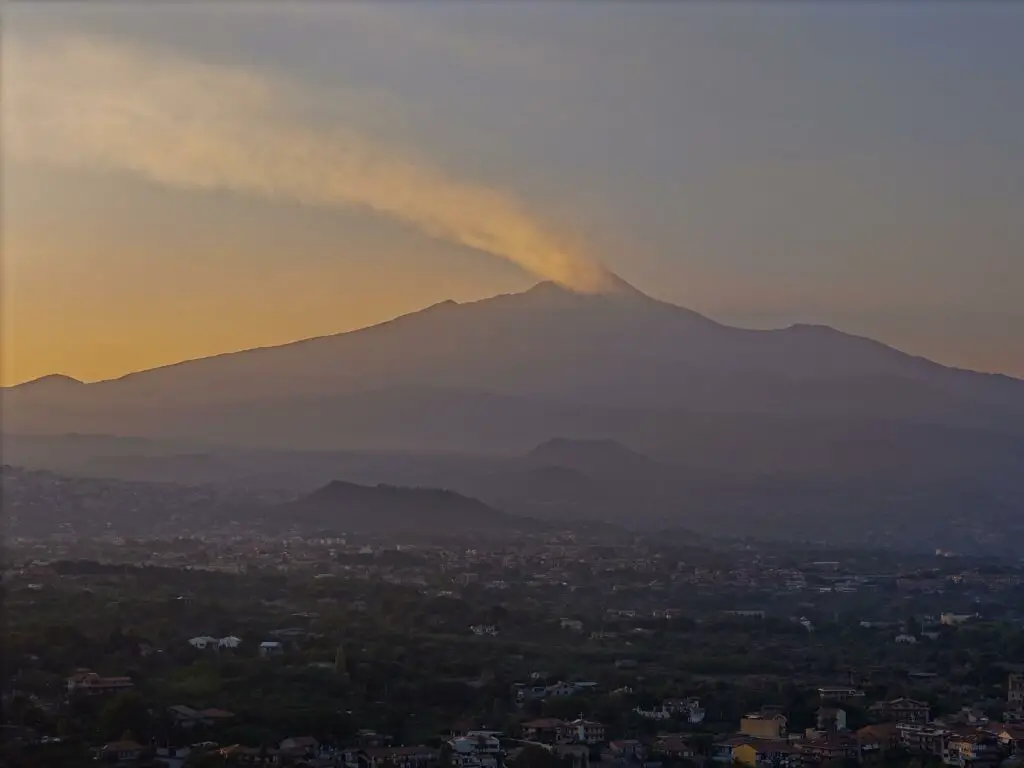
Low Light Photos
Wide Angle Lens
In low-light photography, the Mini 3 Pro has shown astonishing results, due in part to the extreme aperture of f1.7
I was expecting something similar with Air 3, at least with the wide-angle lens. The results are beyond belief
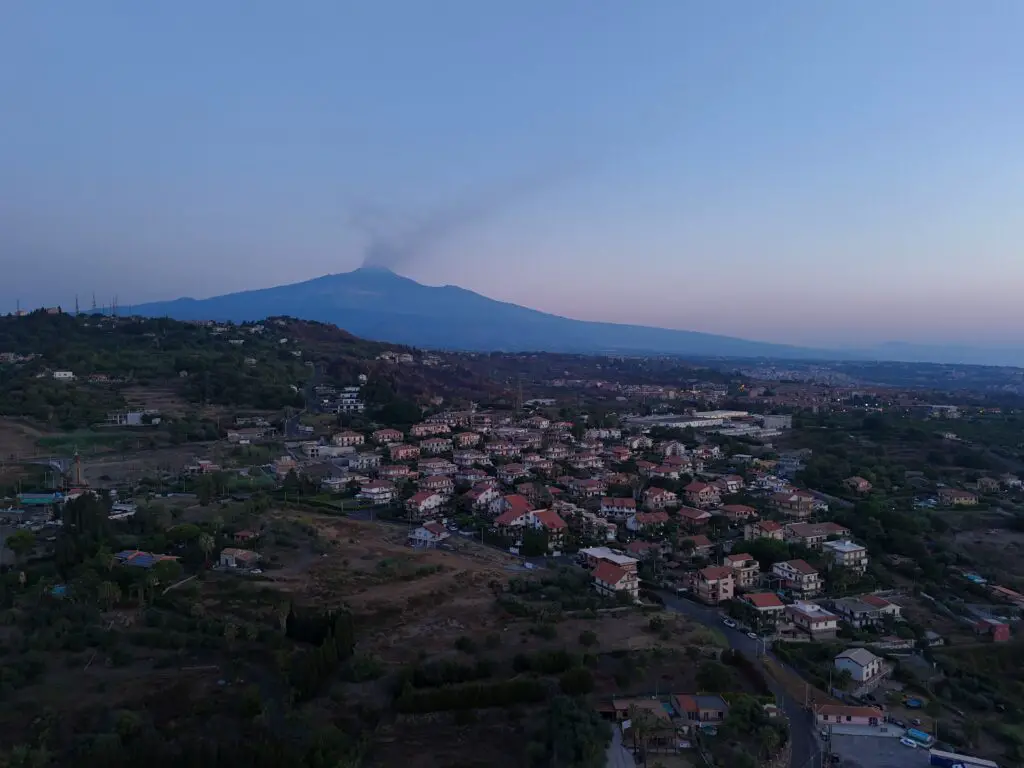
I know a lot of you will think that these are not low-light conditions, but believe me, it was very dark, with the last bit of twilight well after sunset and artificial lights
These are situations where previous models of the DJI line used to struggle and we needed to boost the ISO values with a good amount of noise
Telephoto Lens
With the 28mm lens, we can simply forget about noise and ISO, we never need to move it from the base value. We can even expose the image to look like full daylight
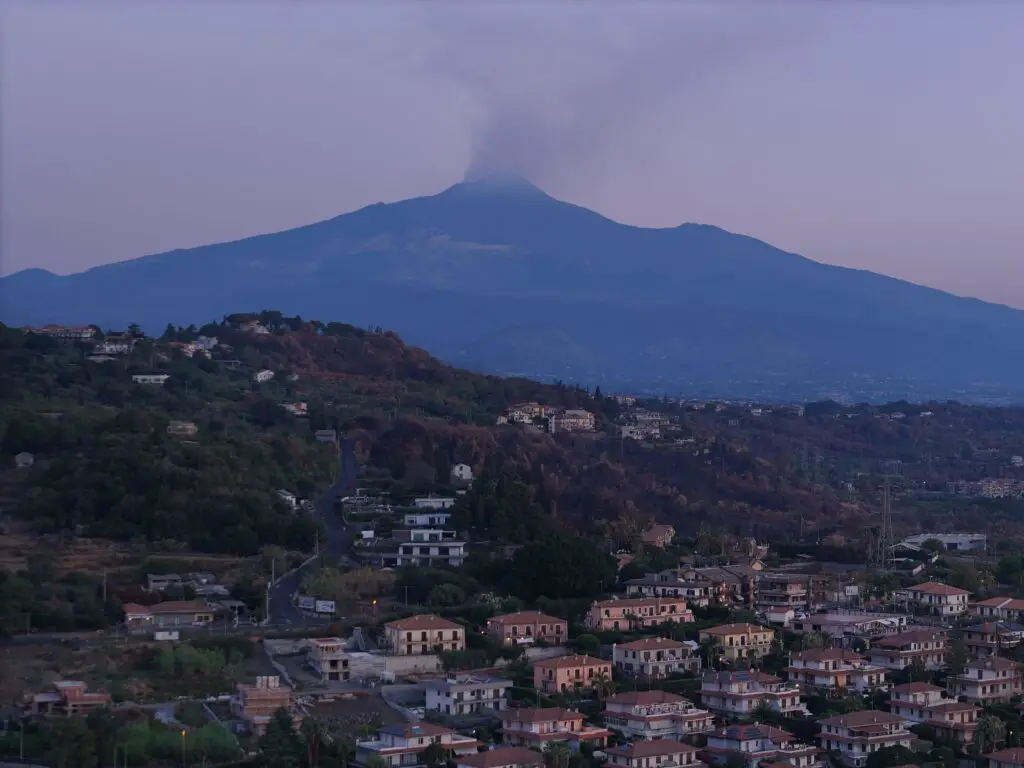
A very similar result is obtained with the 70mm lens, despite the smaller aperture of 2.8
